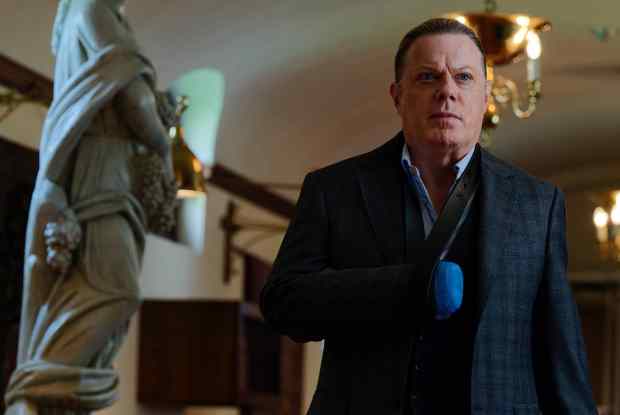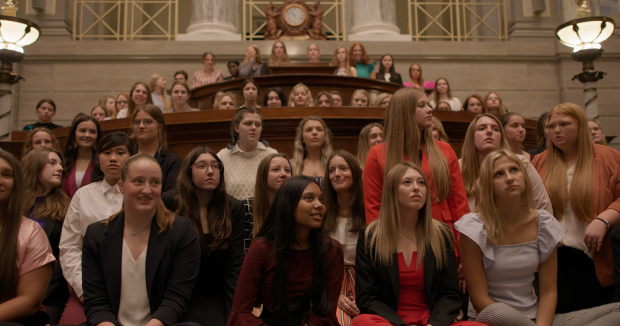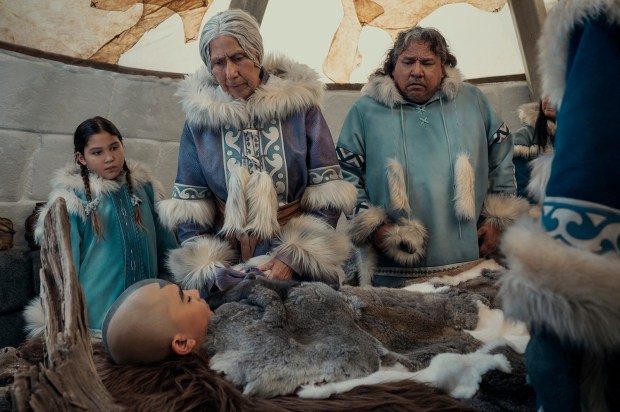One of Boy’s more annoying teenage rules of thumb is that, if Dad likes it, it must be crap. This applies of course not just to all those classic albums I consider an essential part of his education from Led Zep III to After the Goldrush, but to books, films and TV shows as well.
In our precious final years together before he leaves home to work his way up the Greenpeace hierarchy, I’d been quite looking forward to snatching a few father/son bonding moments as we settled down in front of, say, Ghosts of Mars, High Plains Drifter, Das Boot, The Sopranos or, as a special treat, the entire series of Band of Brothers back to back. But I’m beginning to fear that it ain’t going to happen.
‘Dad,’ he said to me the other day. ‘I just watched Withnail & I.’ Nervously, I asked how he’d found it. ‘Pretty decent,’ he said. I breathed a sigh of gratitude — Withnail & I is only, like, my favourite film ever — but also felt a stab of pain. For 14 years I’d been longing for the moment when Boy was old enough for us to be able to watch Withnail & I together, perhaps with Dad doing a running commentary explaining all the jokes and pop cultural references and reminiscing about the time he went for a curry with Bruce Robinson. But teenagers these days seem to prefer doing these things on their own. I blame laptops and the interweb and streaming sites like Netflix.
It was thanks to Netflix, mind, that I recently scored a minor triumph. Boy came to me at breakfast, looking shame-faced. ‘Dad, I’ve been watching Breaking Bad,’ he said. ‘And???’ I asked. ‘Pretty decent,’ said Boy. I was hugely relieved. Of course I don’t mind my 14-year-old watching corpses being dissolved in buckets of acid, and people getting their faces blown off and children being shot in cold blood and girls OD-ing on crystal meth. But what I would have minded very much indeed is if a son of mine were to watch Breaking Bad and not consider it one of the finest pieces of TV drama ever.
When I last wrote about Breaking Bad in these pages, I think I’d only got about as far as Season Two. ‘Season Two? Only Season Two,’ hardened Breaking Bad vets would say to me, at once patronisingly and envyingly. Now I see why. In second world war terms season two is roughly equivalent to having reached the Norway campaign: you have a vague idea about the direction of travel but, honestly, there’s more extremity and mayhem and brutal slog ahead of you than you can possibly imagine.
If I’m making it sound like a traumatic experience that’s because it is. I love watching Breaking Bad but hate it at the same time because it feels so real and involving it’s like an extension of your own life. ‘Damn!’ you think, as you jiggle nervously on the edge of the sofa (you can never quite relax in Breaking Bad), ‘not only did I fail to ask our cleaner how much she was going to charge for feeding the cat while we were away and neglect to invent some excuse to blow out that ghastly dinner party which is now tomorrow night, but if we don’t manage to find a new source of methylamine for the lab our supply chain will be disrupted and the boss might have me executed.’
Breaking Bad’s trajectory has been aptly described as ‘from Goodbye, Mister Chips to Scarface’. Walter White — a high-school chemistry teacher in Albuquerque, New Mexico, discovers he has terminal cancer and, to secure his family’s fortunes, decides to reinvent himself as manufacturer of the finest-grade crystal meth in the whole of the southwest US. Over the next five seasons, things get every bit as brilliant and awful as you would expect.
So harrowing does it get, in fact, that for a period I couldn’t bear to carry on watching. As he progresses up the drug-dealing food chain, Walter grows steadily more reckless, ruthless and unpleasant to the point where you almost cease to sympathise with him. But this is precisely what makes Breaking Bad such grown-up television — the early-21st-century equivalent, indeed, of Shakespeare. It’s not there to make you feel nice and comfy and pleasantly diverted: it’s about life as most of us experience it — ugly, messy, unjust, frustrating and rarely doled out except in two quantities, too much and not enough.
Negotiating his uneasy path through this chaos is the tragic protagonist. Walt’s intentions could not be more selfless or noble — but in order to achieve them, he must sell his soul to the dark side, thus all but nullifying his every gain. What, after all, is the point of being the great, generous Dad you always wanted to be if you can never tell your son how you could afford his birthday sports car? How can you be said to have secured your family’s fortunes when, as a result, your wife loathes you, your sex life is over and your kids are at constant risk of violent death from some Mexican cartel?
Amid the glorious Technicolor splatter of its supreme ultraviolence, what Breaking Bad shows is that the tricky moral choices we make in life have profound consequences. So glad that Boy’s learning this while he’s still so young. Maybe yet he’ll make a better hash of things than his burned out, poor, uncool old Dad did.
Got something to add? Join the discussion and comment below.
Get 10 issues for just $10
Subscribe to The Spectator Australia today for the next 10 magazine issues, plus full online access, for just $10.
You might disagree with half of it, but you’ll enjoy reading all of it. Try your first month for free, then just $2 a week for the remainder of your first year.














Comments
Don't miss out
Join the conversation with other Spectator Australia readers. Subscribe to leave a comment.
SUBSCRIBEAlready a subscriber? Log in